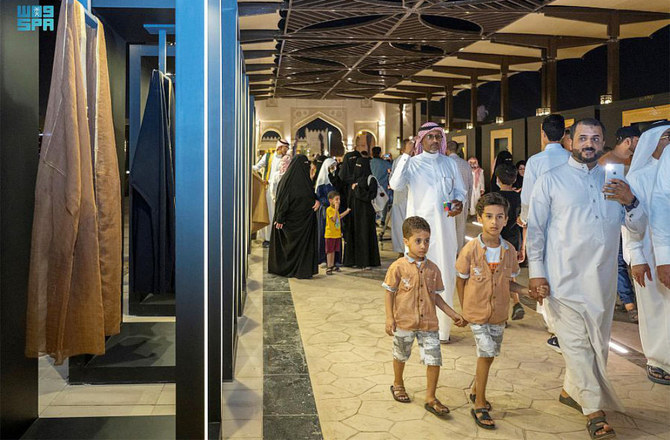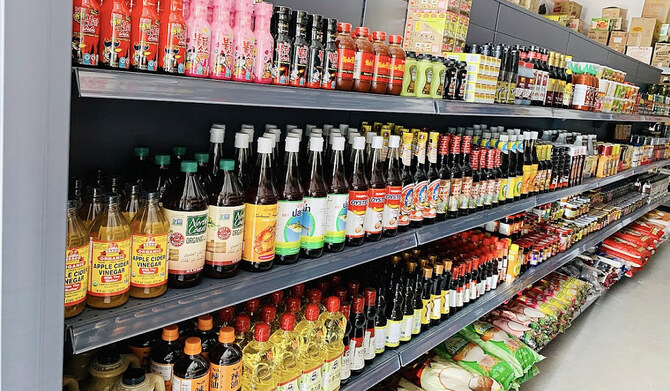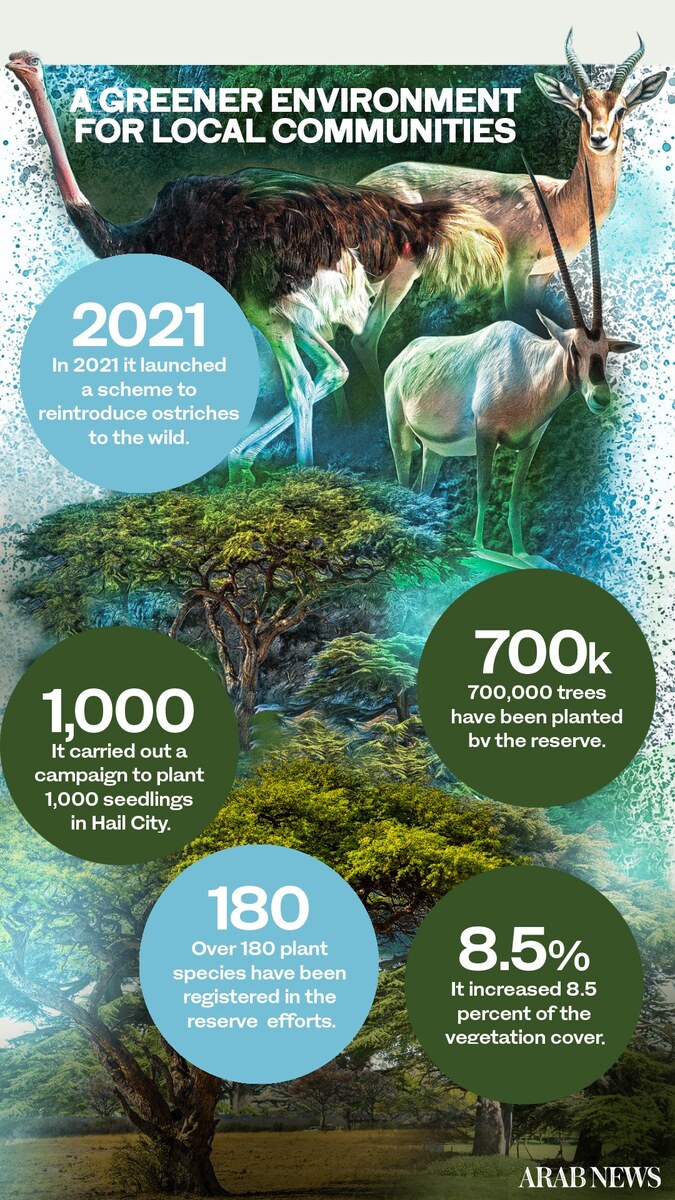RIYADH: Tuesday marks the end of the Hasawi Bisht festival, which is held in the Souq Al-Arbi’a in Al-Ahsa.
The bisht is a traditional men’s cloak popular in Arab countries, worn over a thobe. It is placed on the shoulder and down to the leg without sleeves.
The week-long festival featured a variety of activities that reflected the historical and cultural heritage of hand knitting in Al-Ahsa, particularly in bisht production.
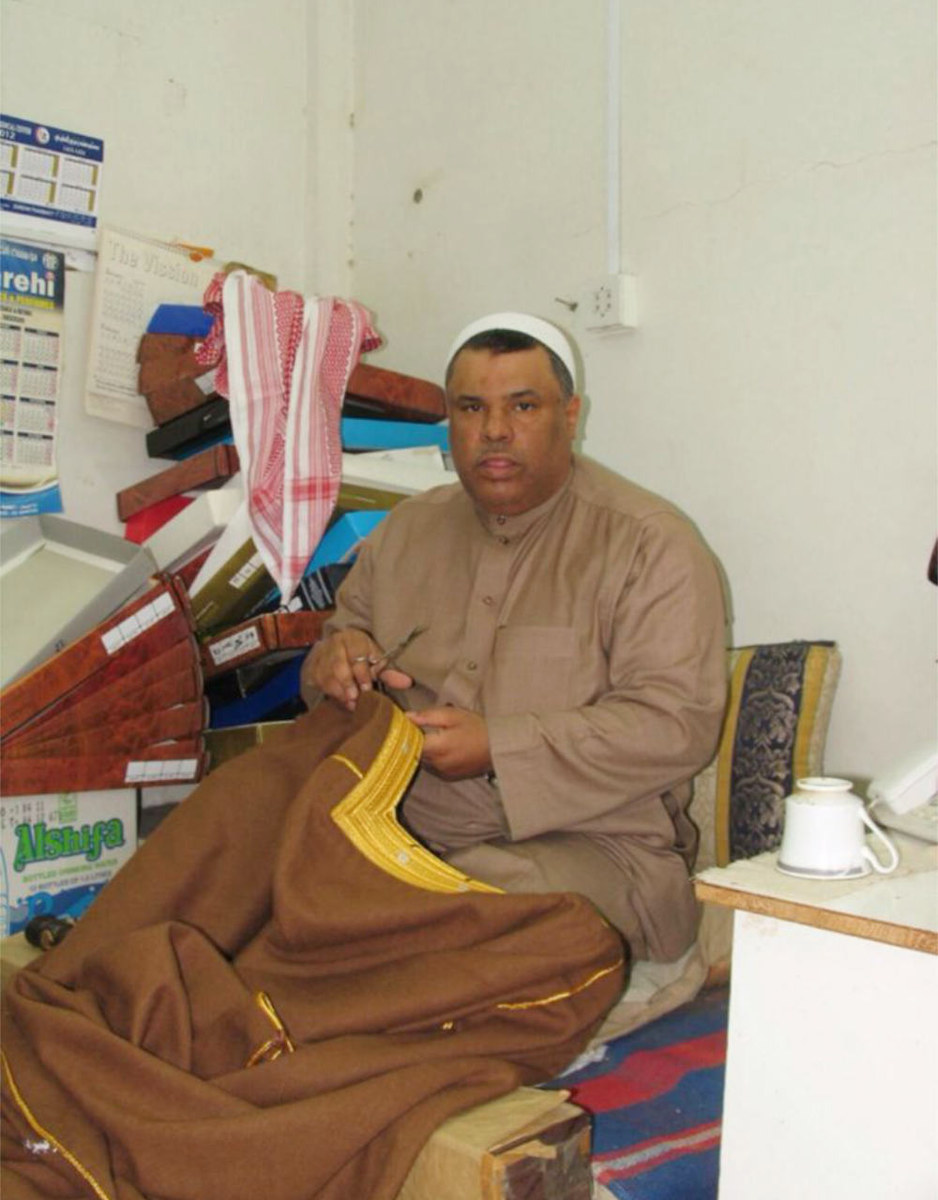
Ali Mohammed Al-Qattan, a well-known merchant in the business, is always keen to sew bisht by hand in his shop in Hafouf. (Supplied)
During the festival's inauguration last Wednesday, Eastern Province Gov. Prince Saud bin Naif wore a light brown bisht and was accompanied by Al-Ahsa Gov. Prince Saud bin Talal bin Badr, and Minister of Municipal and Rural Affairs and Housing Majid Al-Hogail.
Many people in Saudi Arabia and the Gulf enjoy wearing bishts on special occasions and holidays, and wear them with traditional ornaments and fine hand stitching, embroidered with various threads and buttons in gold or yellow, silver, white, and red.
HIGHLIGHT
Many people in Saudi Arabia and the Gulf enjoy wearing bishts on special occasions and holidays, and wear them with traditional ornaments and fine hand stitching, embroidered with various threads and buttons in gold or yellow, silver, white, and red.
Male grooms in Saudi Arabia almost always wear a bisht, and many universities insist on their students wearing one during graduation ceremonies.
Emad Al-Ghadeer, executive member of the national logistics committee at the Federation of Saudi Chambers, said: “There is no doubt that Hasawi bisht is a brand with a long history, and it needs to be cared for and properly introduced to ensure its continuity.”

Governor of the Eastern Province Prince Saud bin Naif wore a light brown bisht while touring the headquarters of the Al-Hasawi Bisht Festival. (SPA)
Al-Ghadeer urged the establishment of training institutes in the industry to boost bisht productivity, “as this work of art contributes significantly to the region’s economic development.”
He compared the Hasawi bisht to a Rolex watch in terms of quality, pointing out that many visitors to Saudi Arabia are eager to purchase them.
According to Ali Mohammed Al-Qattan, one of the biggest merchants in the business in Al-Ahsa, there has been an increase in bisht sales after many months of the industry being affected by the COVID–19 pandemic.
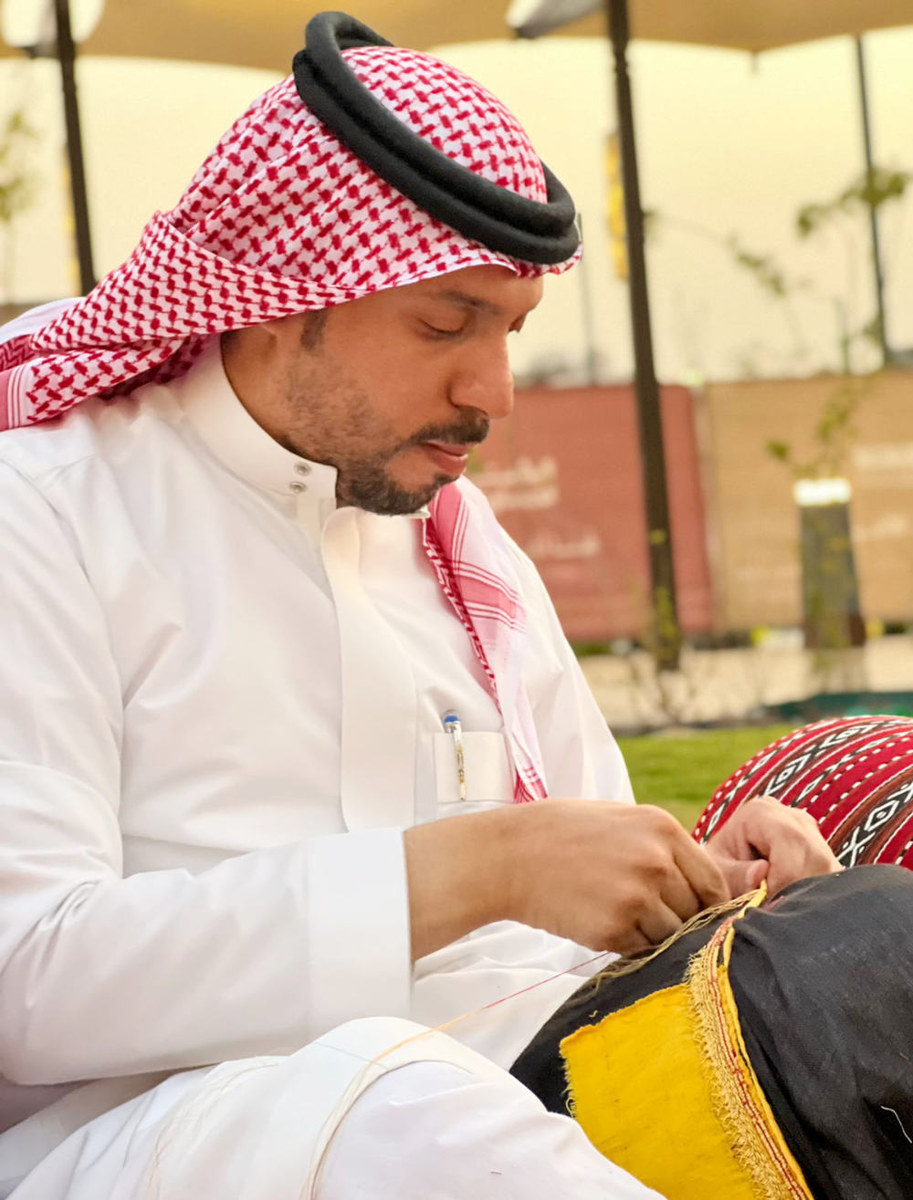
Muhammad Ali Al-Qattan follows in his father's footsteps by hand sewing bishts. The Al-Hasawi Bisht Festival began on Wednesday and will last seven days. (Supplied)
While machine-made bishts began to dominate markets many years ago, aided by their low prices, handmade bisht continue to exist “at least among elites,” he said.
“For each specific part of the bisht, there is a tailor who is good at working with it and feels (it is) easy to sew it,” he added.
The seven-day festival features an exhibition documenting the value of bisht, live workshops on the bisht industry, and a celebration of national handicrafts, including bisht knitting.
Al-Ahsa is well-known for the bisht, a historical craft that has been passed down through many families for generations.

Emad Al-Ghadeer, Executive Member of the National Logistics Committee at Saudi Cambers Council. (Supplied)
Khaled Al-Farida, director general of the tourism authority in Al-Ahsa, said that the bisht industry was initially a women’s profession, as women were eager to knit them for their sons who went to the Kataib (Qur’an memorization sessions), distinguishing them from others.
Men ventured into the business as demand increased, and slowly the industry began to expand.
The names of the bisht are based on the rows of decoration, the width and the shape, which can be triangular, quadrilateral, hexagonal, or octagonal, he explained.
Al-Farida noted that the bisht was once only sold to the rich — merchants, and those with wealth and power. Later, the bisht evolved into a costume and a national symbol of Saudi Arabia and its Gulf neighbors.
According to him, black is the most desired color, particularly during marriages, and one reason for this is that it takes on a distinctive shape when inlaid with gold-colored buttons, as well as beige and brown.


